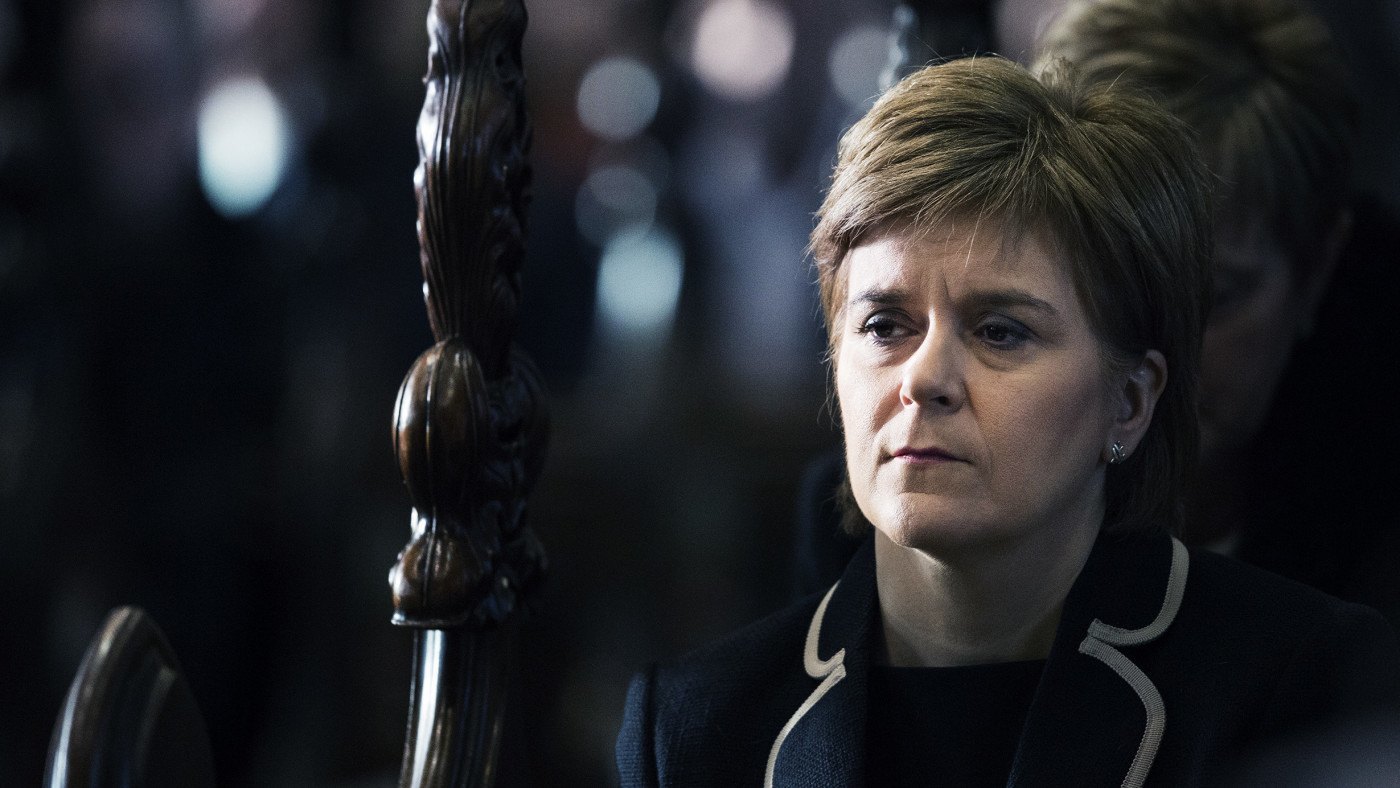Sanctimony has always been a key ingredient of Scottish politics, second only to self-interest. It has a long pedigree, dating back to John Knox and his godly Reformers, down through the Covenanters, Gladstone’s Midlothian campaign of tub-thumping self-righteousness and the temperance movement that defeated Winston Churchill for the parliamentary seat of Dundee, to the pro-devolution convulsion in the 1990s when it became commonplace to articulate, without a trace of self-consciousness, the axiom that the Scots are “more moral” than the English.
That self-deluding maxim is the Covenant of the Scottish National Party. The SNP has brought back the rule of the Saints. The “unco guid” – the collective moral hierarchs that inform the conscience of the nation – are no longer embodied in the Kirk but in the SNP, handing down commandments from the moral high ground. In this new Covenanter regime the high priestess is Nicola Sturgeon.
Sturgeon’s preferred territory is the proclamation and defence of human rights. Certainly it is more comfortable ground for her than the proclamation and defence of the SNP’s economic achievements. At the last general election she elevated opposition to the Conservatives’ proposed repeal of the Human Rights Act to the status of a crusade. Since then, as the much-hyped Tory manifesto commitment has moved forward with glacier-like slowness, Nicola Sturgeon has milked this useful diversion for all it is worth.
Last September, in Joan of Arc mode, she shared a platform in Glasgow with Shami Chakrabarti, director of Liberty, and pledged the Scottish government would veto repeal of the Human Rights Act. In reality, the Act is a Westminster statute and a protected enactment under Schedule 4 of the Scotland Act. Its repeal requires no consent from Holyrood, though a successor Bill of Rights would encounter some difficulties under the Sewel Convention, but since that is a convention, not a law, it could legitimately be sidelined if the Scottish government were to oppose vexatious obstruction to Westminster legislation.
This event was a good photo opportunity for Nicola Sturgeon. Shami Chakrabarti commented admiringly: “The First Minister of Scotland shows international leadership today.” The director of Liberty did not see fit to query the increasingly arbitrary powers over its citizens being assumed by the Sturgeon government, including the reintroduction of the scheme for a national ID database and the imposition of state guardians, or “Named Persons”, on every Scottish child, with authority legally superseding that of parents.
But meanwhile Saint Nicola was showing “international leadership” more discreetly. It is a universally acknowledged maxim that, if a human rights crusader’s first resort is to Shami Chakrabarti, her second port of call is naturally Beijing.
“Sturgeon in China” is the opera-in-waiting no Scottish composer has yet tackled, though it would suit the Gilbert and Sullivan genre. Last summer the First Minister headed off to China on a trade mission and – as you would expect – a human rights campaign. “One of the guiding principles of our engagement with China,” she said, “is respect for human rights and the rule of law.” Between touting for investment she was billed to speak on women’s rights to an audience of 100 women, drawn from government and other officially approved circles, so her freedom-loving sentiments clearly reached a significant percentage of the Chinese population.
On her return it was proudly announced 10 Scottish firms had secured partnerships worth £55m over three years. However, there was rather more than that at stake. On 21 March this year the SNP government signed an investment agreement on major infrastructure projects with two Chinese companies, SinoFortone and China Railway No. 3 Engineering Group (CR3), the largest construction company in the world. This deal was worth £10bn. The projects immediately envisaged were a clean energy scheme and construction of affordable housing.
Yet this coup, which dwarfed Sturgeon’s previous £55m announcement, remained secret until it was unhelpfully revealed by journalist and former Labour minister Brian Wilson in his Scotsman column. Why on earth would any government, in the run-up to an election but before the “purdah” period kicked in, refrain from trumpeting a £10bn investment deal from the rooftops?
It has emerged that the Norwegian Oil Fund withdrew its £26m investment in CR3 after its ethics council declared there was “a risk that the company is involved in gross corruption”. Since the Norwegian Oil Fund has the revered status in SNP myth enjoyed by the Book of Genesis in Southern Baptist theology, this revelation was a severe blow. Nicola Sturgeon has claimed she knew nothing of the corruption allegations. In that case, why the secrecy surrounding what would normally have been a triumphantly announced pre-election investment coup?
Between the signing and the start of the pre-election “purdah” period Sturgeon’s administration issued press releases about beavers and dog-fouling, but remained silent about a £10bn bonanza. The SNP government claims full due diligence was not required on the deal since the agreement was only a “memorandum of understanding”. Meanwhile, FoI requests continue to expose the pertinacity with which Alex Salmond courted Qatar for financial investment (on a trip to the emirate he took briefing papers with him for a proposal to sell Edinburgh airport to Qatar).
Qatar, China – the human rights agenda embraces strange places. In fairness, there is a case to be made for China’s human rights record. It is better than North Korea’s and – er – that’s about it. In normal circumstances, such a revelation on the eve of elections would be fatal to a governing party, but in the Scottish electorate’s present state of consensual stupor the SNP could introduce the Chinese One Child policy without forfeiting many votes. Yet that catatonic condition will not last forever and Nicola Sturgeon’s halo has slipped badly; by 2020 it may be around her neck.


